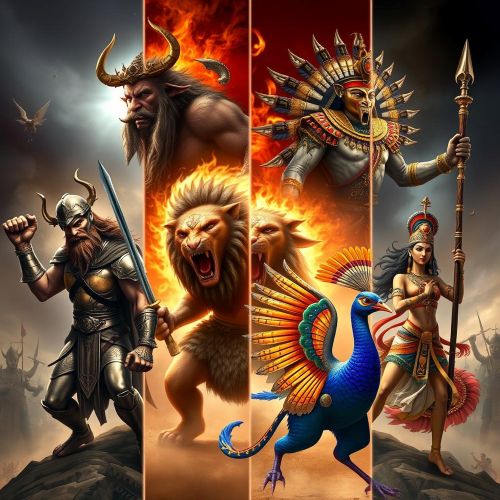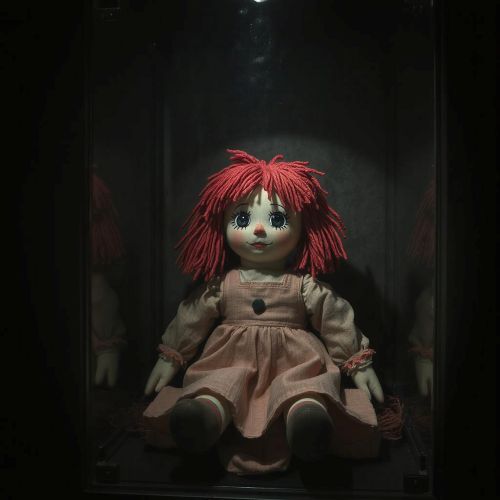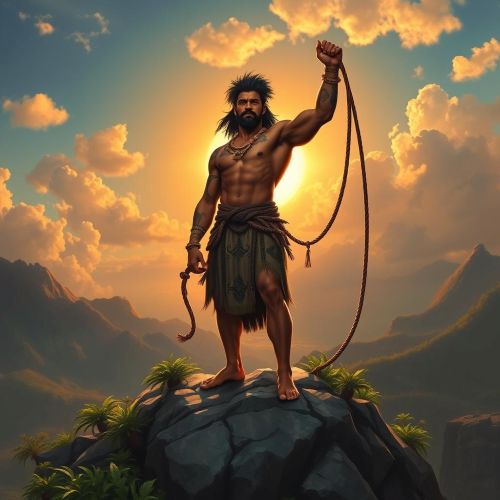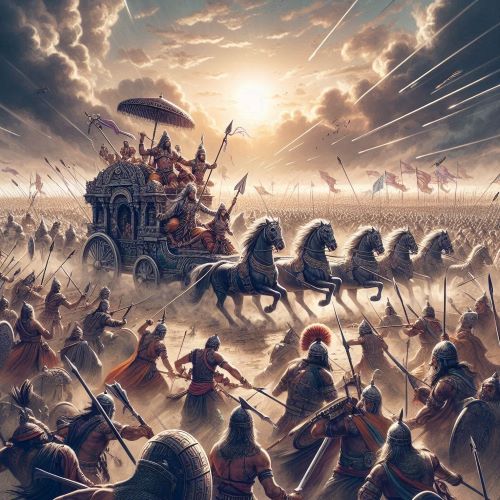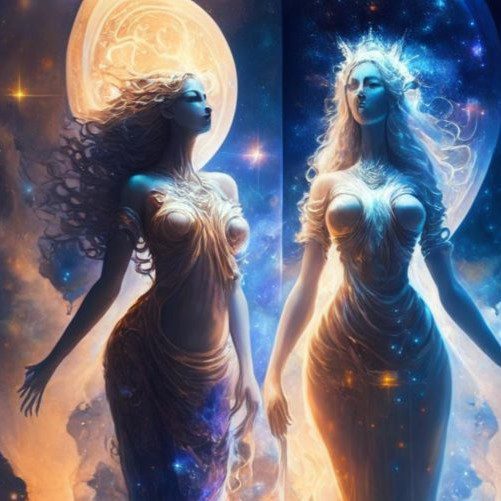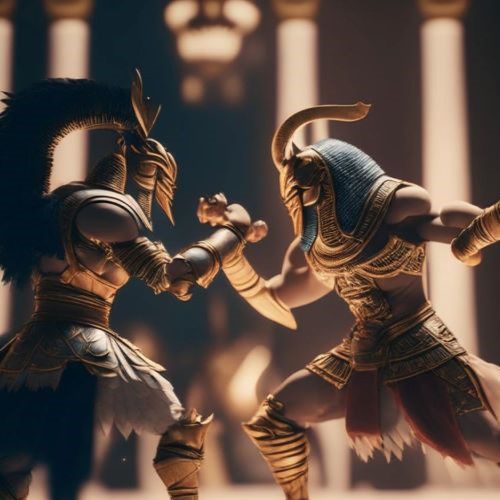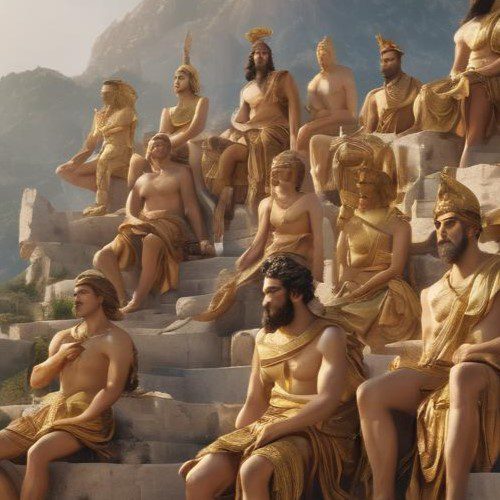10 Powerful Gods of War from World Mythology
Across every ancient civilization, war has been glorified, feared, and deified. Entire pantheons included gods dedicated to battle, victory, bloodshed, and honor. These gods of war were called upon by warriors for strength, kings for conquest, and nations for survival. While each culture envisioned their deities differently, they all reflect the same primal instinct—survive and conquer.
Here are 10 of the most powerful gods of war from different cultures, each representing unique facets of combat and warfare.
1. Ares – Greek God of War
Ares embodies the chaos, aggression, and physical brutality of war. In Greek mythology, he is the son of Zeus and Hera, often depicted in full armor, ready for combat. Unlike Athena, who symbolizes strategy and wisdom in warfare, Ares thrives in the raw emotion and violence of the battlefield. Though not always honored by the Greeks, he remained a feared presence in every myth involving conflict.
2. Mars – Roman God of War
Mars, the Roman counterpart to Ares, held a much more revered position. He was not just a god of war but also a guardian of Roman civilization. Considered the father of Romulus and Remus, the legendary founders of Rome, Mars symbolized martial power used in the service of peace and prosperity. Roman soldiers invoked his name before going to battle, making him one of the most central gods in Roman religious life.
3. Sekhmet – Egyptian Goddess of War
Sekhmet, the lion-headed goddess, was both a healer and a destroyer in Egyptian mythology. Created by the sun god Ra, she was unleashed upon mankind to punish rebellion. Her fury was so intense that only trickery could calm her bloodlust. Pharaohs invoked her for protection and victory, believing she could decimate entire armies with her divine rage. Sekhmet represents the scorching heat of battle and divine retribution.
4. Tyr – Norse God of War and Law
In Norse mythology, Tyr is a god of heroic glory and righteous warfare. Known for his wisdom and bravery, he sacrificed his hand to bind the monstrous wolf Fenrir, showing the nobility often linked with Norse warrior ideals. While Odin and Thor later took center stage in Viking lore, Tyr remained a symbol of justice in war and the ultimate price warriors may pay for peace.
5. Huitzilopochtli – Aztec God of War and the Sun
One of the most significant deities in Aztec mythology, Huitzilopochtli was both a sun god and the god of war. He led the Mexica people on their legendary migration and demanded regular human sacrifices to maintain his strength and ensure the sun would rise each day. His cult was central to the Aztec military empire, and temples were erected to honor his insatiable appetite for warrior blood and cosmic order.
6. Zhurong – Chinese God of War and Fire
Zhurong is a prominent figure in Chinese mythology, representing fire, order, and martial authority. Often portrayed riding a tiger and wielding fire as a weapon, Zhurong governed the southern heavens and fought to maintain cosmic balance. In myth, he was both a warrior and a civilizing force, embodying discipline, power, and elemental fury. His legacy is reflected in Chinese martial traditions and epic tales of heavenly combat.
7. Ogun – Yoruba God of War and Iron
Ogun is the god of war, metal, and craftsmanship in Yoruba mythology from West Africa. A fierce and determined deity, Ogun cleared the path for civilization with his iron tools. Warriors, hunters, and blacksmiths all revered him, and his cult spread across the African diaspora, appearing in Afro-Caribbean religions like Vodou and Santería. His power lies not only in brute strength but in the mastery of technology and weaponry.
8. Bellona – Roman Goddess of War
Often overshadowed by Mars, Bellona was the Roman goddess who personified the destructive side of war. She was commonly depicted with a helmet, sword, and torch, leading armies into chaos and glory. Her temple in Rome was where formal declarations of war were made, and she served as a divine witness to Rome’s military ambitions. Bellona represents the bloodstained yet revered face of conflict.
9. Kartikeya – Indian God of War
Known by many names—Skanda, Murugan, Subrahmanya—Kartikeya is the Hindu god of war, born to defeat the demon Tarakasura. Riding a peacock and wielding a divine spear called the Vel, Kartikeya symbolizes courage, discipline, and youthful energy. He is worshipped widely in South India and among Tamil communities worldwide. Kartikeya’s mythologies emphasize strategy, leadership, and the victory of divine order over chaos.
10. Mixcoatl – Aztec God of War and the Hunt
Mixcoatl, meaning “Cloud Serpent,” is a Mesoamerican deity associated with war, hunting, and the celestial Milky Way. As a nomadic warrior god, he was revered by the Chichimeca and later absorbed into Aztec mythology. Believed to have discovered fire and invented the bow and arrow, Mixcoatl represents the nomadic warrior’s resilience and cunning. He was also the father of Quetzalcoatl, continuing his influence through generations of divine warriors.
Final Thoughts
These gods of war reflect how diverse cultures interpreted the battlefield—not just as a place of death, but also of transformation, courage, and divine justice. Whether summoned for protection or victory, these warrior deities continue to inspire stories, rituals, and media even today. They remind us that the essence of war lies not only in destruction but also in resilience, identity, and survival.


